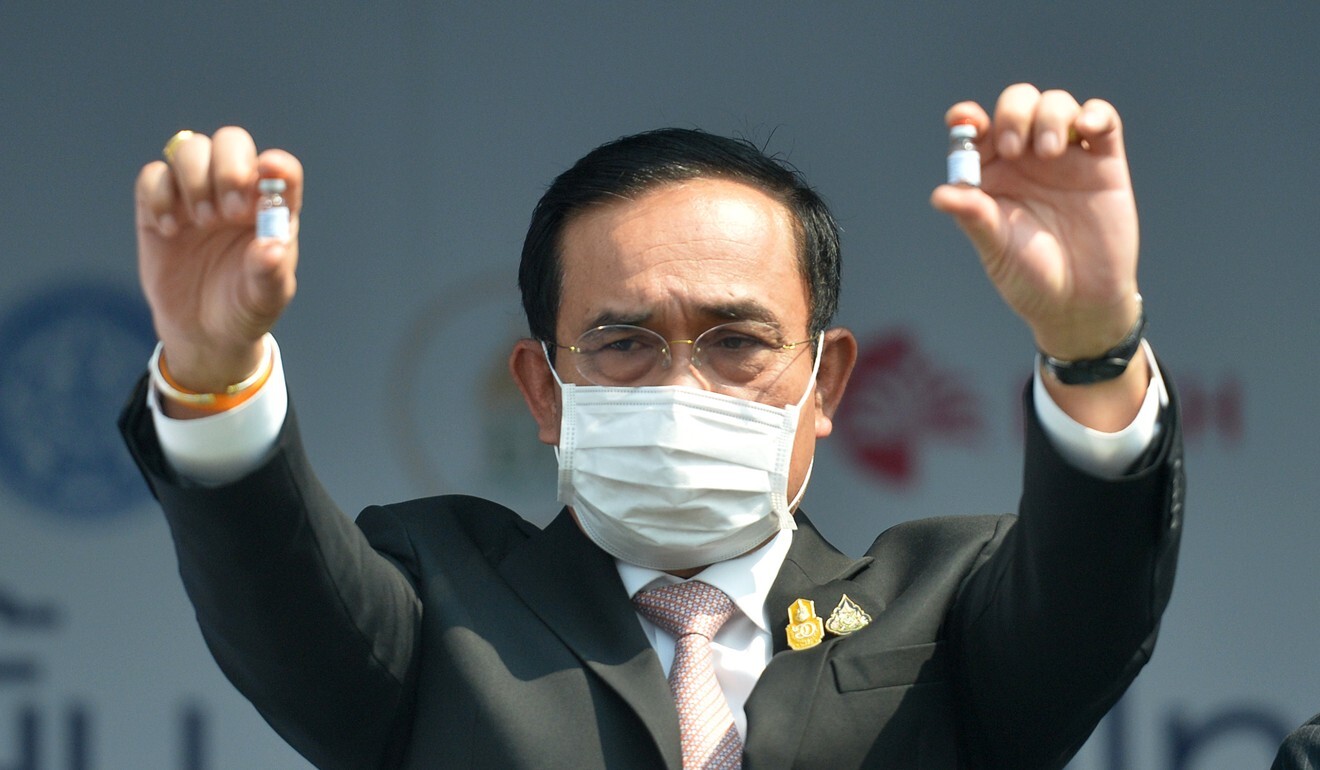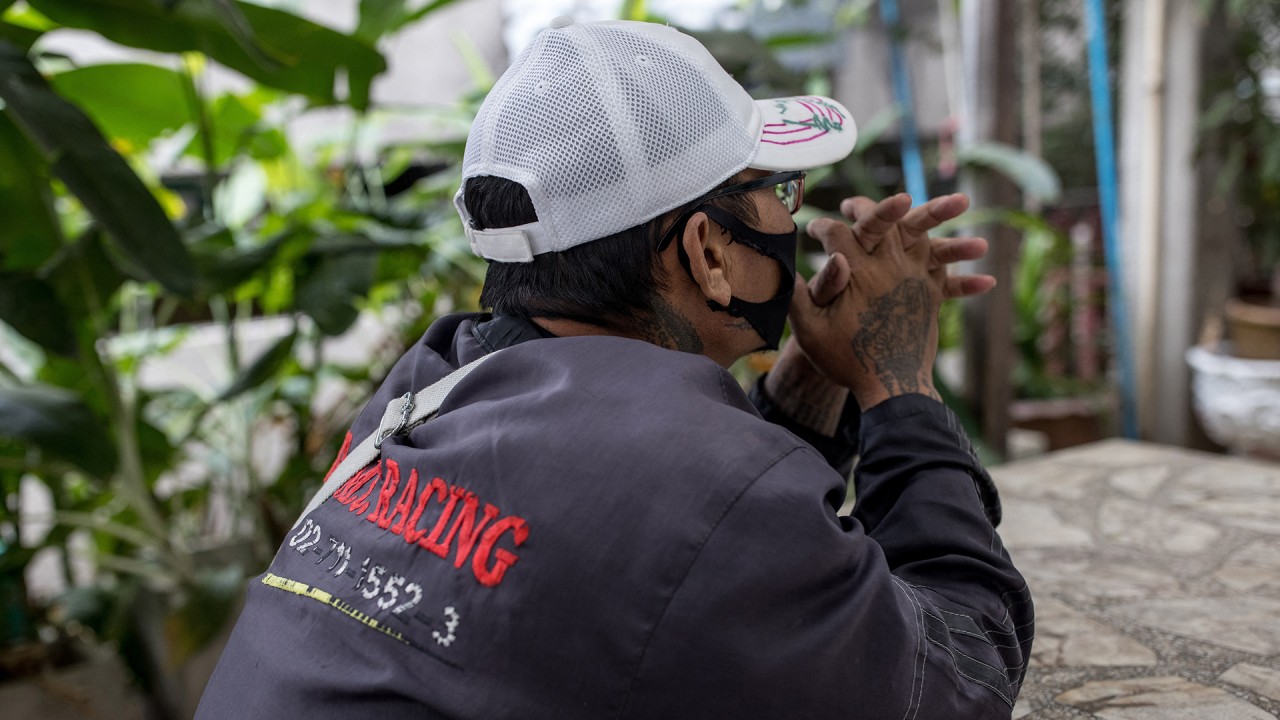
Thailand begins vaccine roll-out with jabs from China’s Sinovac
- Southeast Asia’s second-biggest economy aims to inoculate 50 per cent of its population by the end of this year as the government tries to reopen
- Prime Minister Prayuth Chan-ocha was not inoculated on Sunday as earlier planned because the Sinovac vaccine is not recommended for people his age
A group of health care workers received the first shots, state-owned NBT television network showed in a national live broadcast, with Prime Minister Prayuth Chan-ocha presiding over proceedings. Prayuth was not inoculated on Sunday as earlier planned because the Sinovac jab is not recommended for people his age, Opas Kankawinpong, director general of the Disease Control Department, told a briefing on Saturday.
“Today’s event is to assure the public about the safety of the vaccine that the government will roll out from now on,” Prayuth said on Sunday. “National vaccination is a major step for the government to go through with this Covid-19 pandemic.”

Southeast Asia’s second-biggest economy aims to inoculate 50 per cent of its population by the end of this year as the government tries to reopen its borders, which have been closed for almost a year to curb the outbreak.
Priority is to be given to the areas of the country worst-hit by the pandemic, including the capital and Samut Sakhon province, where an outbreak among migrant workers at a shrimp market in December became the epicentre of the country’s second wave of infection.
Thailand’s first batch of 200,000 Sinovac doses – it has ordered 2 million in total – arrived in the country to great fanfare on Wednesday, with most of the Thai cabinet and the Chinese ambassador on hand to welcome the shipment at Bangkok’s airport.
The government has also approved AstraZeneca Plc’s vaccine and has ordered 61 million doses.

03:06
Coronavirus: Covid-19 fuels illegal yaba meth trade in Thailand as pandemic halts exports
Deputy Prime Minister and Health Minister Anutin Charnvirakul and four other ministers received the Sinovac shot on Sunday. AstraZeneca’s vaccine arrived in Thailand on February 24 but the company still needs to complete the quality-assurance process, it said in a statement on Saturday. Both vaccines require two doses to be administered, two weeks apart.
The Thai government has come under heavy scrutiny in recent months over its vaccination programme, which opposition politicians and protesters said lacked transparency and was too slow in procurement at the cost of public health and the economy.
Nakorn Premsri, chief of the country’s National Vaccine Institute, said Bangkok had decided not to join the World Health Organization’s Covax Facility vaccine-sharing scheme – making it the only Asean member state not to do so – because most of the jabs provided under it would be from AstraZeneca, which the country is already working on manufacturing locally.
Thailand’s business sector has voiced concerns that a late start to vaccinations will also mean a delayed economic recovery. Sectors ranging from heavy industry to tourism have expressed willingness to import vaccines privately, with government permission, and provide them to their employees and clients.
Boon Vanasin, chairman of Thonburi Healthcare Group, said he was seeking clarification from the government on whether private hospitals were allowed to import Covid-19 vaccines and offer them commercially.
I want to propose that the government create a travel bubble between Thailand and China
“I want to propose that the government create a travel bubble between Thailand and China. Chinese tourists who have been vaccinated should forego a two-week quarantine,” said Boon, whose medical tourism business has been affected by the pandemic.
Thailand’s Minister of Tourism and Sports Pipat Ratchakitprakarn said he expected some vaccine doses to be allocated to tourism workers to create confidence among international visitors.
Supant Mongkolsuthree, chairman of the Federation of Thai Industries, said the government should speed up the vaccination drive and allow more types of vaccines to be imported. “Many business owners would like to vaccinate their employees. The government should consider fixing some regulations to allow this.”


